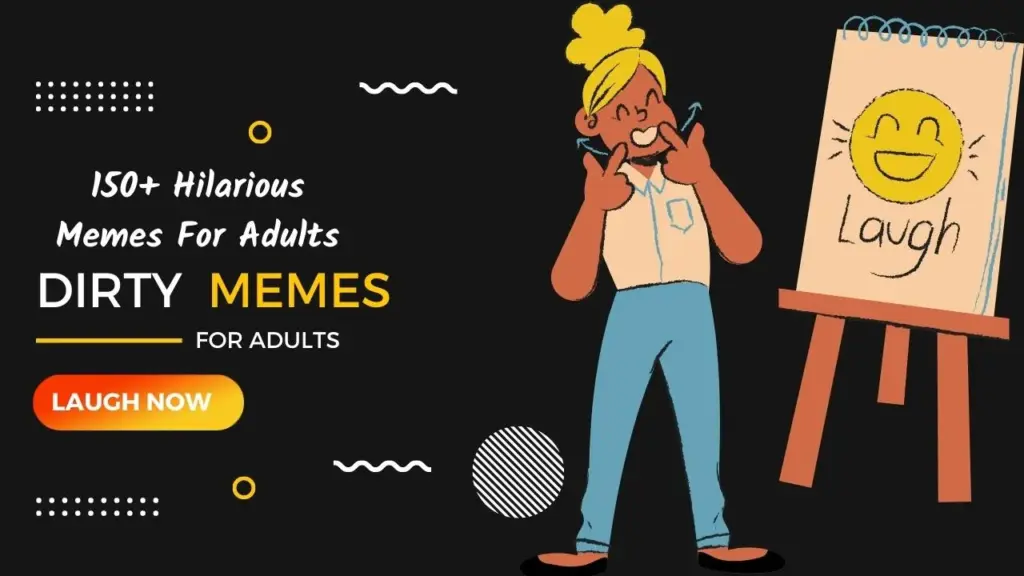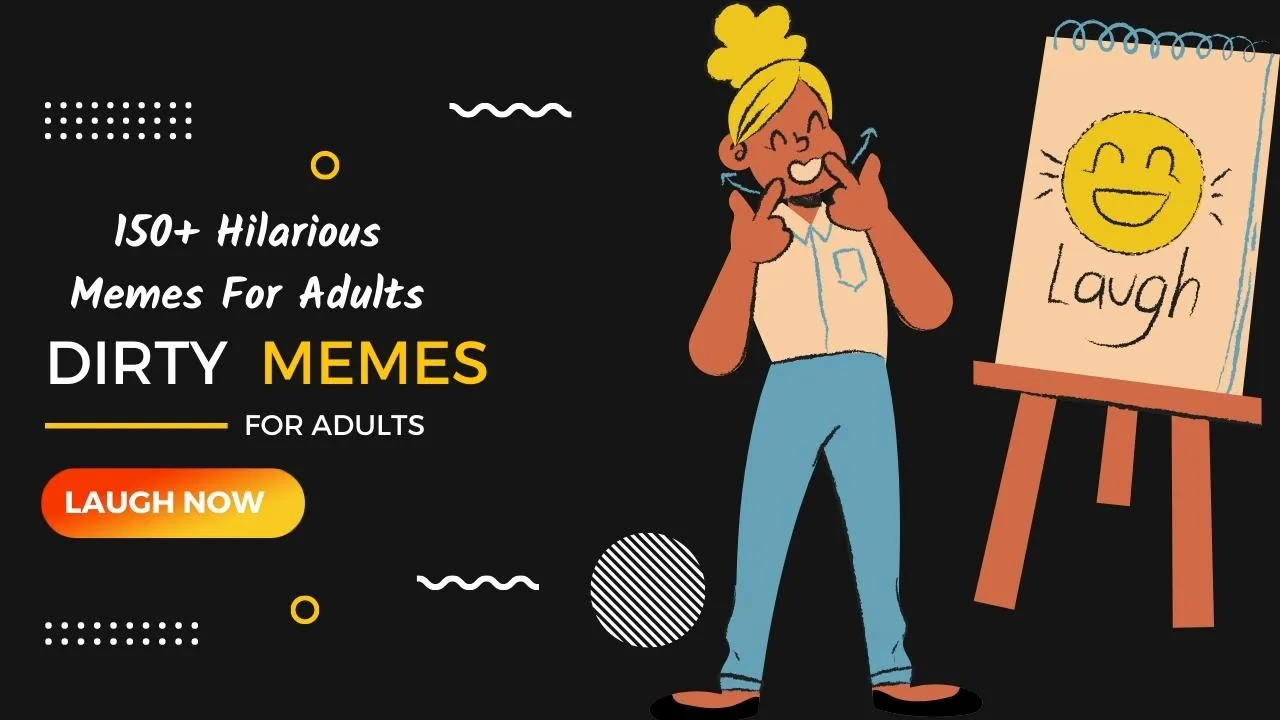
Decoding the Viral World of Dirty Memes: Humor, Controversy, and Online Culture
The internet, a vast and ever-evolving landscape of information and entertainment, has given rise to a unique form of expression: the meme. Among the myriad of memes that populate our social media feeds, dirty memes stand out for their provocative nature and often controversial content. These memes, which typically employ humor laced with sexual innuendo or suggestive imagery, have become a significant, albeit sometimes divisive, part of online culture. This article delves into the world of dirty memes, exploring their origins, their appeal, the controversies they often spark, and their impact on society.
The Genesis of Dirty Memes
Memes, in their simplest form, are ideas or styles that spread from person to person within a culture. Internet memes, however, take this concept and amplify it through digital platforms. They are typically images, videos, or text that are humorously altered and shared rapidly online. The evolution of dirty memes can be traced back to the early days of internet forums and imageboards, where anonymity and a lack of censorship allowed for more risqué content to flourish. These early forms often involved crude jokes and sexually suggestive images, laying the groundwork for the more sophisticated (and sometimes more offensive) dirty memes we see today.
The rise of social media platforms like Reddit, Twitter, and Instagram further accelerated the spread of dirty memes. These platforms provided a fertile ground for the creation and dissemination of memes, allowing them to reach a wider audience than ever before. Subreddits dedicated to specific types of humor, including those with a more adult slant, became hubs for the creation and sharing of dirty memes. [See also: The Evolution of Internet Humor]
The Allure of Dirty Humor: Why Are Dirty Memes So Popular?
The popularity of dirty memes can be attributed to several factors. Firstly, humor, in general, is a powerful tool for social bonding and stress relief. It allows us to laugh at the absurdities of life and to connect with others who share our sense of humor. Dirty memes, in particular, often tap into taboo subjects, making them inherently attention-grabbing. The shock value and the inherent risk of sharing such content can add to their appeal.
Secondly, dirty memes can be a form of catharsis. They allow us to explore our sexuality and our desires in a safe and anonymous environment. For some, they provide an outlet for expressing thoughts and feelings that they might not feel comfortable sharing in real life. The anonymity of the internet allows individuals to engage with dirty memes without fear of judgment or social repercussions.
Furthermore, dirty memes often rely on relatable experiences and observations about relationships, sex, and social interactions. This relatability makes them more engaging and memorable. When we see a dirty meme that reflects our own experiences, we are more likely to share it with our friends and followers, further contributing to its spread.
The Controversy Surrounding Dirty Memes
While dirty memes can be humorous and entertaining, they also often generate controversy. The suggestive nature of these memes can be offensive to some, particularly those who find them to be sexist, objectifying, or simply in bad taste. The line between harmless humor and offensive content is often subjective, and what one person finds funny, another may find deeply offensive.
One of the main criticisms of dirty memes is that they can perpetuate harmful stereotypes and contribute to a culture of sexual objectification. Some argue that these memes normalize the objectification of women and reinforce harmful gender roles. Others worry that they can contribute to a culture of sexual harassment and assault. It’s important to note that not all dirty memes are created equal, and some are more problematic than others. However, the potential for harm is always present.
Another concern is the impact of dirty memes on younger audiences. Children and teenagers are increasingly exposed to online content, and they may not have the maturity or the critical thinking skills to understand the context and the potential implications of dirty memes. Exposure to sexually suggestive content at a young age can have a negative impact on their development and their understanding of healthy relationships.
The debate over dirty memes highlights the complex relationship between freedom of expression and the need to protect vulnerable individuals from harm. While it is important to uphold the right to express oneself freely, it is also crucial to be mindful of the potential consequences of our words and actions, especially in the digital realm. [See also: The Ethics of Online Humor]
The Impact of Dirty Memes on Society
The impact of dirty memes on society is multifaceted and difficult to quantify. On one hand, they can be a source of entertainment and social connection, allowing people to bond over shared humor and relatable experiences. They can also provide a platform for exploring taboo subjects and challenging social norms. On the other hand, they can contribute to a culture of sexual objectification, perpetuate harmful stereotypes, and have a negative impact on younger audiences.
The widespread sharing of dirty memes can also desensitize individuals to sexually suggestive content, making them less likely to recognize and respond to harmful behavior. This desensitization can have serious consequences, particularly in the context of sexual harassment and assault.
Furthermore, dirty memes can contribute to the spread of misinformation and harmful ideologies. Memes are often used to spread propaganda and disinformation, and dirty memes are no exception. They can be used to promote sexist, racist, or homophobic views, often under the guise of humor. It is important to be critical of the content we consume online and to be aware of the potential for manipulation.
Navigating the World of Dirty Memes: A Call for Critical Thinking
The world of dirty memes is a complex and often contradictory landscape. It is a place where humor and offense, entertainment and harm, coexist. As consumers of online content, it is our responsibility to navigate this landscape with critical thinking and awareness.
We must be mindful of the potential consequences of sharing dirty memes, both for ourselves and for others. We should consider whether the content is offensive, harmful, or perpetuates harmful stereotypes. We should also be aware of the potential impact on younger audiences and take steps to protect them from inappropriate content.
Ultimately, the future of dirty memes will depend on how we choose to engage with them. By promoting responsible online behavior and fostering a culture of respect and empathy, we can help to ensure that the internet remains a positive and enriching space for all. So, the next time you encounter a dirty meme, take a moment to consider its message and its potential impact before you share it with the world. Remember, humor should uplift and connect us, not degrade and divide us. The proliferation of dirty memes is a reflection of our society, and we have the power to shape that reflection into something positive. Even the most seemingly harmless dirty memes can have unintended consequences, so let’s strive for a more mindful and responsible online experience. The world of dirty memes is constantly evolving, and it’s up to us to ensure that it evolves in a positive direction. A thoughtful approach to engaging with dirty memes can make a real difference. [See also: Digital Citizenship in the Age of Memes]

